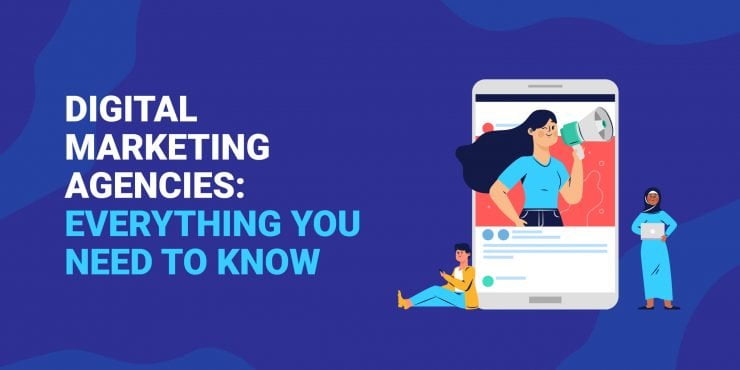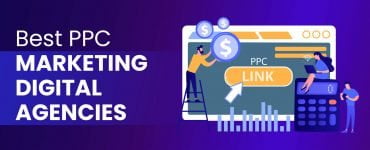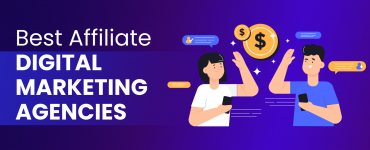After partnering with dozens of digital marketing agencies and freelancers, we know what we’re talking about.
We wanted to share our insights on what marketing services are available and how to go about picking the right one for your needs.
Here’s a rundown of everything you need to know.
Best for Growth Marketers
Best for Paid Ads & CMO's
Table of Contents
- What Is a Digital Marketing Agency?
- What Does a Digital Marketing Agency Do?
- Types of Services Offered by Marketing Agency
- Marketing Agency vs. Freelancer
- Pros of Marketing Agency
- Cons of Marketing Agency
- How Much Do Digital Marketing Agencies Charge?
- When Should I Use an Agency or a Freelancer?
- How to Pick the Right Digital Marketing Agency
- Is a Digital Marketing Agency Worth It?
- Types of Digital Marketing Agencies
- Frequently Asked Questions
We offer this website completely free to our visitors. To help pay the bills, we’ll often (but not always) set up affiliate relationships with the top providers after selecting our favorites. However, we do our best not to let this impact our choices. There are plenty of high-paying companies we’ve turned down because we didn’t like their product.
An added benefit of our relationships is that we always try to negotiate exclusive discounts for our visitors.
What Is a Digital Marketing Agency?
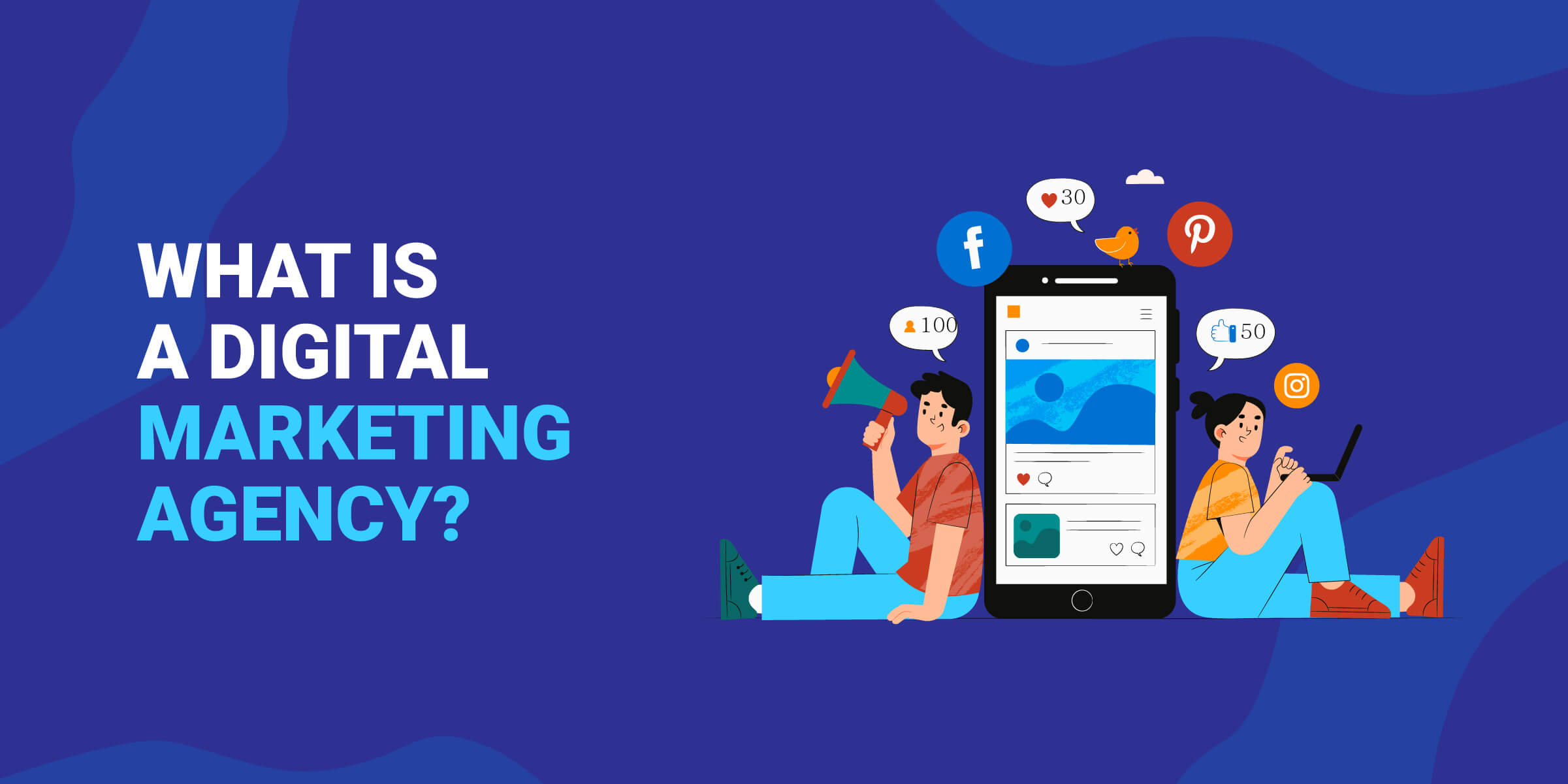

A digital marketing agency is a collective of marketers that provides various digital marketing services to create an online presence and good PR for a business.
These agencies typically charge the client monthly or per-project basis for their services and can have some sort of specialization when it comes to their clients.
Digital marketing agencies often have a variety of experts with specialties in different areas of digital marketing.
The ultimate goal of a digital marketing agency is to help clients drive up sales and traffic.
What Does a Digital Marketing Agency Do?
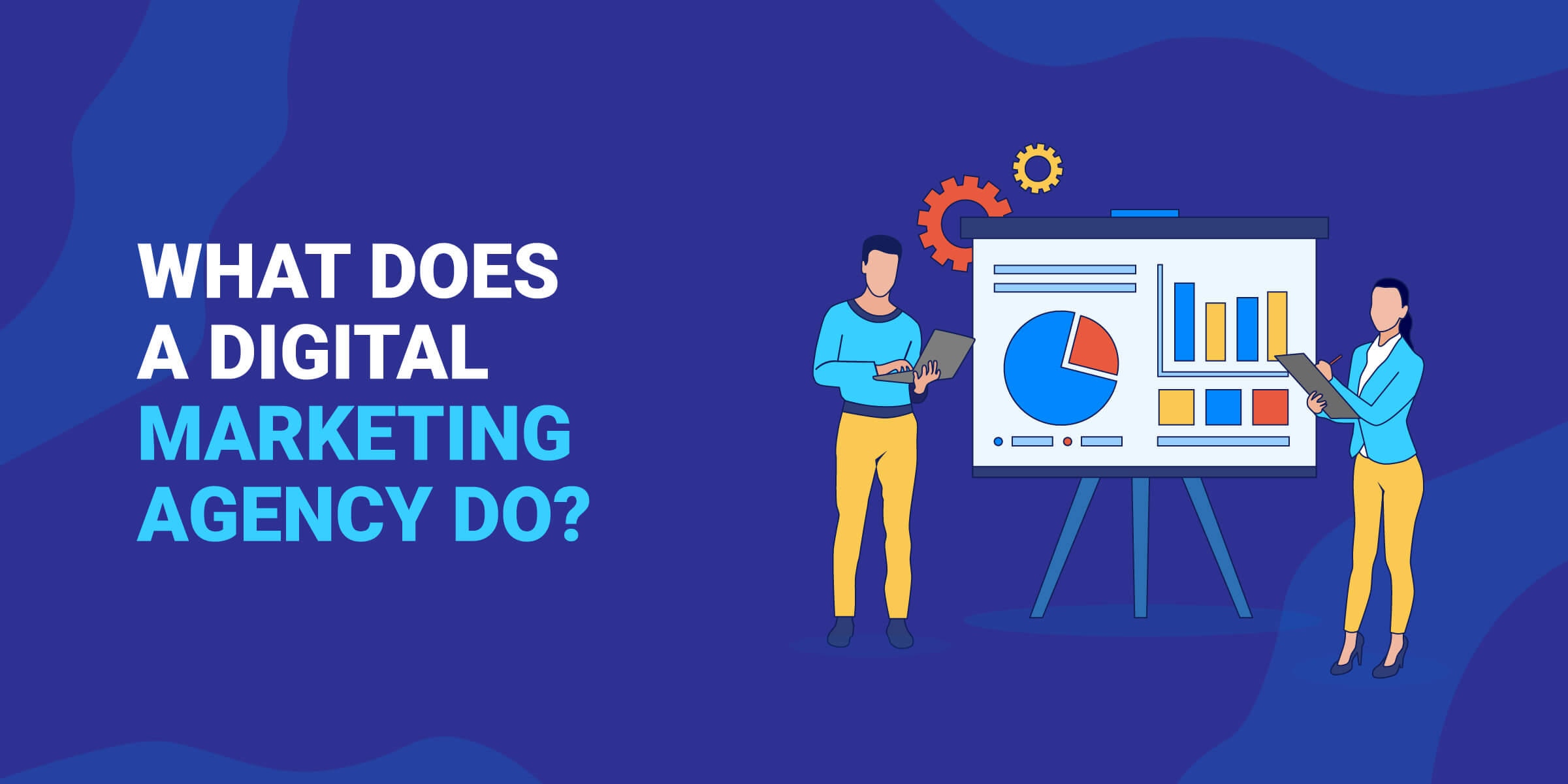

A digital marketing agency does… a lot.
In general, a digital marketing agency uses strategy, industry expertise, and marketing skills to deploy a digital marketing campaign to drive up a business’s success.
Depending on the agency and its specialty, a digital marketing agency can offer everything from branding to social media to SMS.
Some digital marketing agencies only offer one or a few of these services, but there are also full-service marketing agencies that offer everything a client could need all in one place.
Anything that helps a business reach its goals falls within the scope of a digital marketing agency.
Types of Services Offered by Marketing Agency
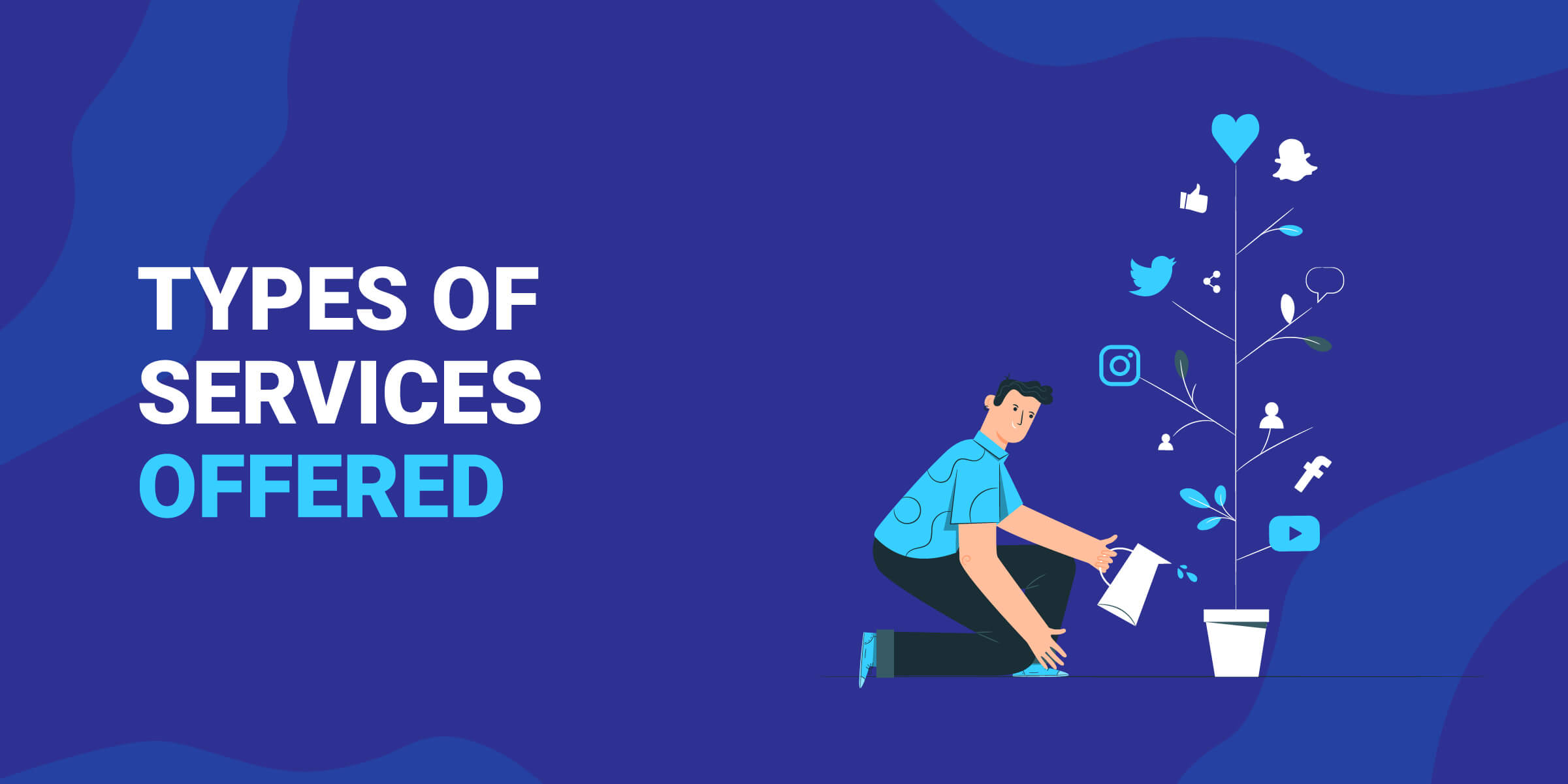

Some digital marketing agencies focus their efforts on one or two of these aspects of digital marketing, but others offer most or all of them.
Let’s get granular.
Content Marketing
Content marketing consists of both the creation and sharing of written, video, audio, and image content.
This includes things like blog posts, articles, podcasts, videos, and the like.
A digital marketing agency that offers content marketing will often offer copywriting, video production and editing, and graphic design services.
SEO
SEO, aka search engine optimization, is essentially using the algorithm to your advantage.
SEO uses the deployment of strategic material. This includes using things like keywords, internal linking, and creating backlinks, all in an effort to help your business’s site rank higher in search.
Most full-service marketing agencies offer SEO, and many digital marketing agencies specialize in SEO exclusively.
PPC
PPC, short for pay-per-click, is an advertising technique where a business pays a certain amount of money for each click their link gets.
The most obvious example of this is those ads listed at the top of every Google search.
Digital marketing agencies that offer PPC arrange and strategize a company’s pay-per-click advertising.
Video Marketing
Video marketing encompasses all of the aspects of recorded video content for a business.
This includes script writing, filming, animation, editing, and distribution of video services for marketing purposes.
Mobile Marketing
Mobile marketing includes every marketing method performed and formatted for mobile phones specifically.
This is different from digital advertising on the computer as it requires specific formatting considerations and functionality alterations.
Online Advertising
Online advertising is a broad, catch-all term for any marketing or advertising that takes place online.
This includes a wide variety of marketing techniques, including banner ads, social media ads, email marketing, search engine landing pages, and PPC advertising.
In today’s world, many companies can obtain users’ information and target their advertising to a specific audience based on their online habits.
Email Marketing
Email marketing is sending marketing materials to potential and current customers via email.
A digital marketing agency that offers email marketing services takes things like design, timing, and content into consideration when crafting email marketing campaigns.
Social Media Marketing
Social media marketing refers to marketing that takes place across any social media platform.
Digital marketing agencies that offer social media marketing will often take care of a company’s social media presence across multiple or all social media platforms.
Affiliate Marketing
Affiliate marketing requires networking and creating mutually beneficial relationships between your company and related ones.
Retailers will pay a commission to an external site for advertising their product or service on that site.
A digital marketing agency that offers affiliate marketing can create and nurture relationships with affiliates.
Marketing Analytics
Marketing analytics is studying and documenting the success of each digital marketing technique and campaign.
This means that the digital marketing agency will crunch the numbers to let you know what’s working, what isn’t, and how good your overall digital presence looks.
Marketing Agency vs. Freelancer
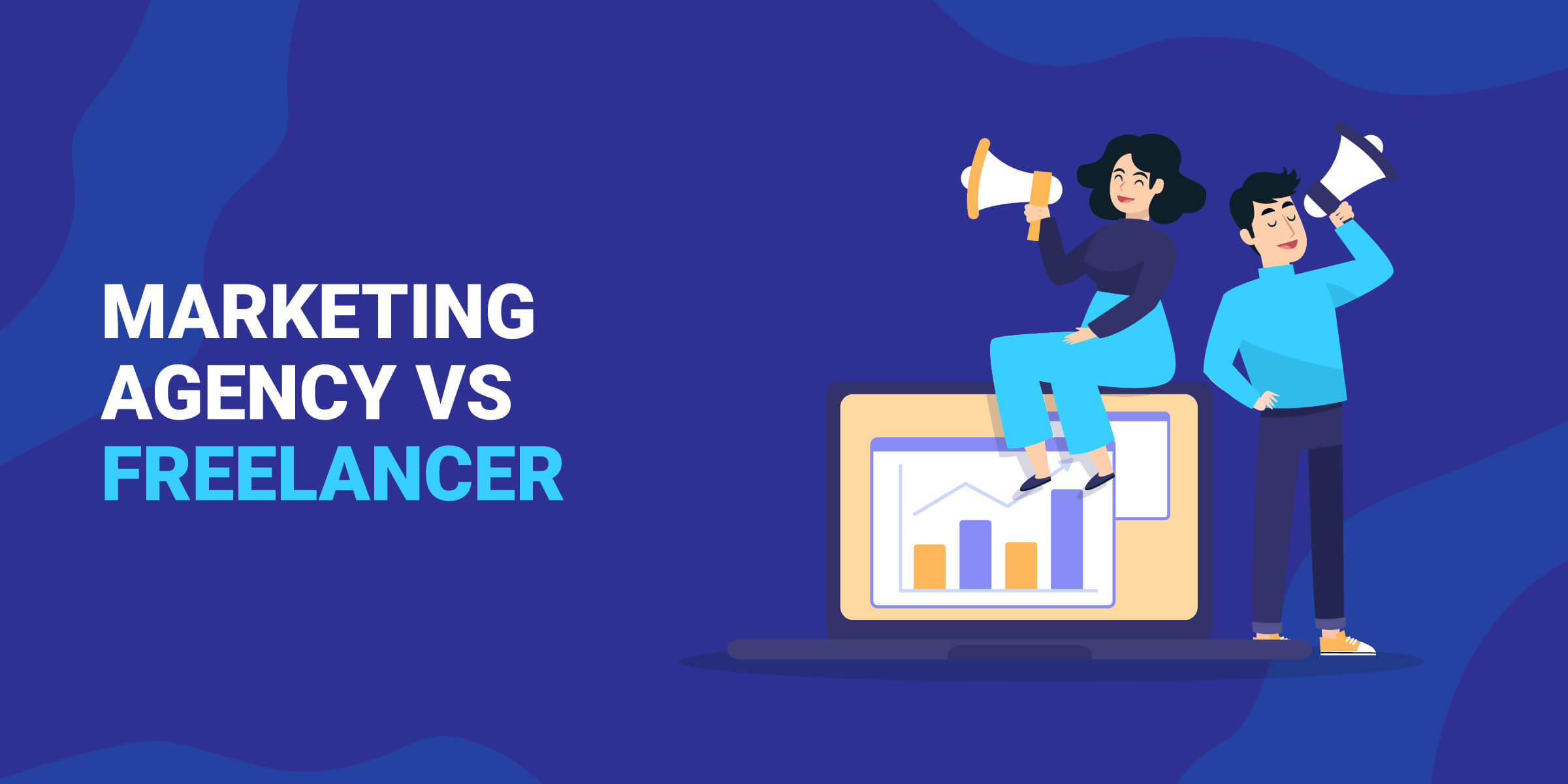

An alternative to hiring a digital marketing agency is to outsource tasks to a singular freelancer, such as email marketing specialist, social media specialist, data analyst, etc.
This differs from a marketing agency in the fact that you will only be dealing with one person instead of a team, which is a positive or a negative, depending on how you look at it.
Many freelancers are talented in multiple aspects of digital marketing, while some specialize in just one or two methods.
When hiring a freelancer, you will often have to seek out and then vet them. You can find plenty of digital marketing freelancers on any of the popular freelance marketplace sites like Upwork or Fiverr. Freelancers are also hired as contractors, whereas you pay for a service with a digital marketing agency.
If you're not set on a freelancer just yet, consider hiring a marketing intern or consultant.
Pros of Marketing Agency
There are some solid benefits to using a digital marketing agency instead of another method like a freelancer, including:
- Wide variety of services– marketing agencies can offer more services since they have more marketing experts.
- Pre-vetted marketers– with an agency, you don’t have to take a gamble like you do with a freelancer.
- Save time– instead of hiring multiple people to do multiple jobs (or trying to teach yourself how to do things,) you can have an entire team take over.
- Get more guidance– a marketing agency is often better at educating business owners about the “why” of digital marketing.
Cons of Marketing Agency
Here’s the downside of hiring marketing agencies.
- Cost– marketing agencies will typically cost more than hiring just a freelancer to do your digital marketing.
- Connection– sometimes it’s easier to form a more personal connection with a freelancer than with a bigger marketing agency.
- Knowledge– a digital marketing agency may not have as much expertise in your specific industry.
How Much Do Digital Marketing Agencies Charge?
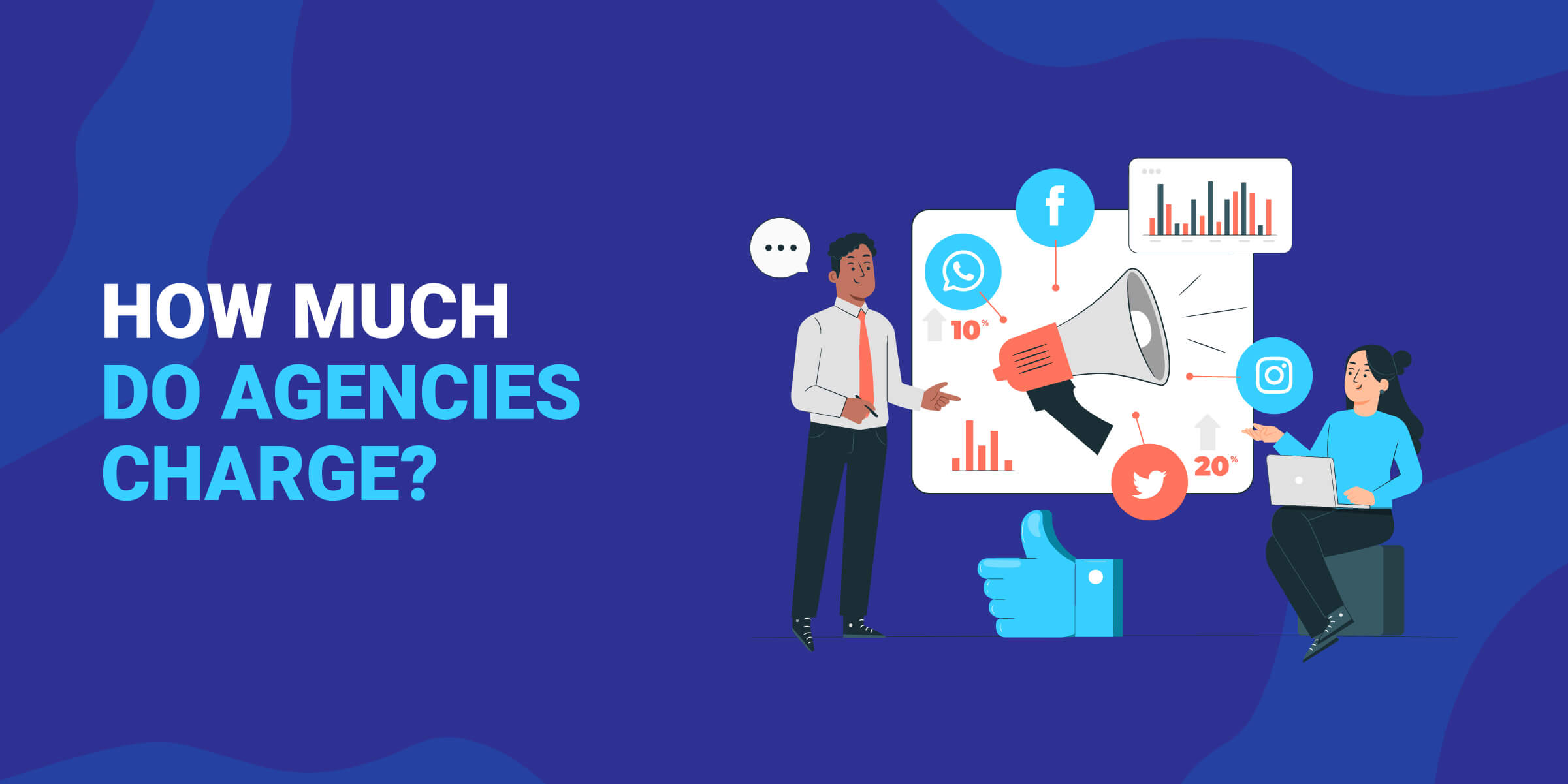

There is a wide variety of different digital marketing agencies with different specialties, so there is a wide range that digital marketing agencies can charge.
That being said, digital marketing agencies charge anywhere from $80-$200 per hour. Depending on how much work you need your digital marketing agency to do, you could spend from $5,000-$50,000 per month for your digital marketing agency’s services.
Check out our post for a full breakdown of marketing agency costs.
When Should I Use an Agency or a Freelancer?
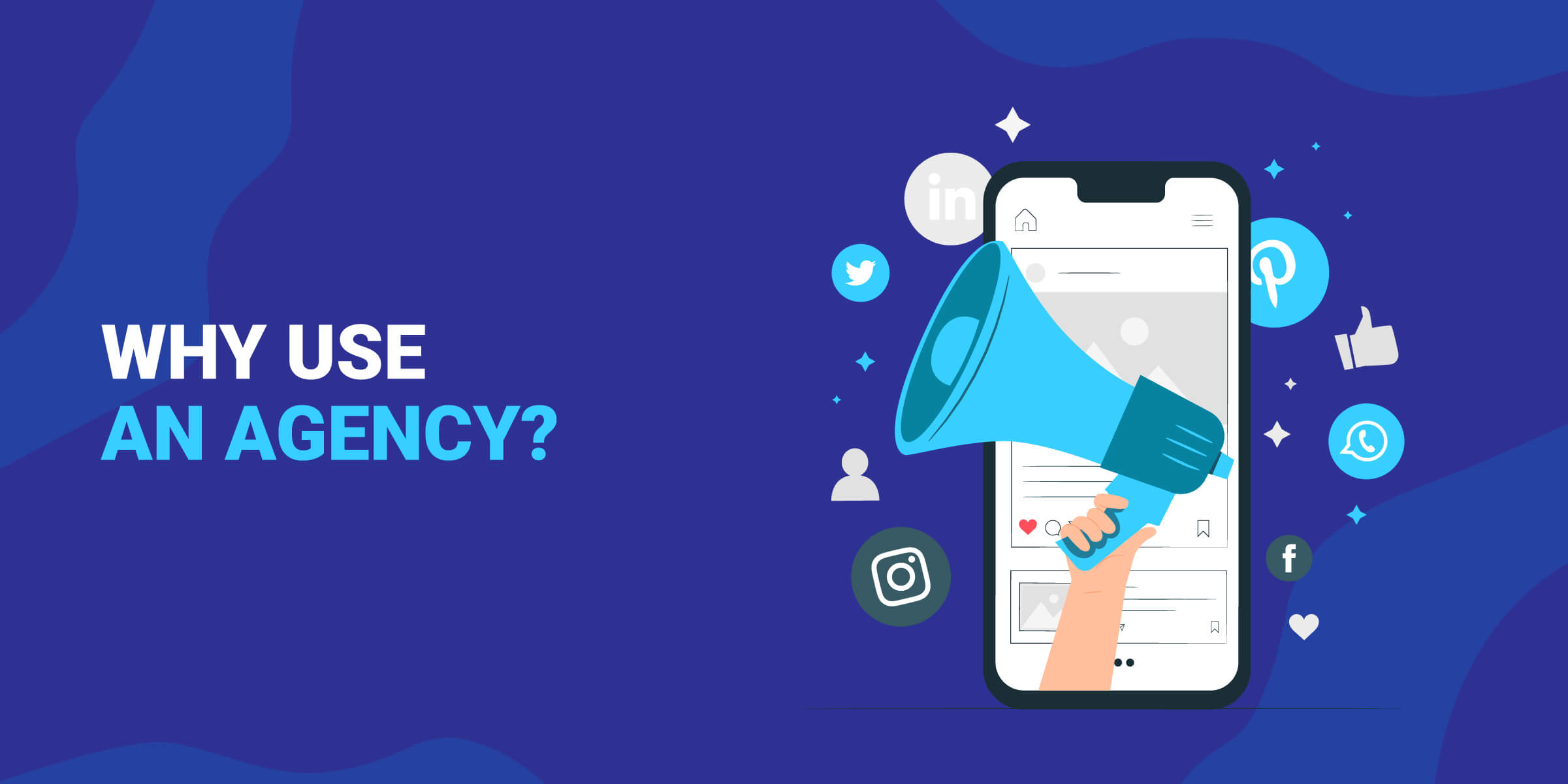


A digital marketing agency may be just what your company needs to scale, but it could also be way more than what you need.
You should probably hire an agency if:
- You have it in the budget
- You have multiple aspects of digital marketing that you need someone to take care of
- Your company is looking to scale
- Most or all of your business is conducted online
- You’re new to digital marketing and need guidance and/or someone to completely take over your digital marketing strategy
It’s a better idea to hire a freelancer if:
- You own a smaller business
- Your budget is tight
- You may want to end up hiring the digital marketing freelancer for full-time work
- You value a more personal relationship with your digital marketing provider
- You only need one or two digital marketing services i.e. SEO, social media, email, PPC, or others
How to Pick the Right Digital Marketing Agency



The right digital marketing agency for you may be entirely different from the right digital marketing agency for another business.
There are some questions you need to ask yourself before taking the leap and investing in a digital marketing agency.
Think about your budget. How much money can you afford to carve out for digital marketing?
Is it important to hire a local agency so that you can meet with them face-to-face as well as know that they have experience in your specific market?
Does the agency have experience in your industry?
What services do you need to be covered? Just SEO? PPC and email marketing? Or are you looking for a full-service agency?
Lastly, it’s always worth it to read reviews on the marketing agency you have your eye on. Getting the opinion of someone who has first-hand experience with a business is invaluable.
Is a Digital Marketing Agency Worth It?
If you have it in the budget and want experts to handle your whole digital marketing strategy and take into account popular modern trends, it’s worth it to invest in a digital marketing agency.
Types of Digital Marketing Agencies
Frequently Asked Questions
What is inbound digital marketing?
Inbound digital marketing uses a more targeted approach to drive more qualified leads to a company’s site, rather than sending aimless marketing to the masses.
What is a full-service digital marketing agency?
A full-service digital marketing agency has the expertise and capabilities to offer clients every aspect of their digital marketing strategy, including things like PPC, SEO, social media, and email marketing.
What do digital marketing agencies do?
Digital marketing agencies provide businesses with strategy and implementation of digital marketing solutions with the intent to encourage more traffic to the business’s site and, ultimately, increase profits.
Should I use a marketing agency or freelancer?
Businesses that can afford it and have more extensive digital marketing needs should use a marketing agency. Smaller businesses that have fewer needs and smaller budgets should use freelancers.
What skills do you need for digital marketing?
Digital marketing requires a variety of skills including SEO knowledge, experience with graphic design, email marketing abilities, strategic planning, social media, and even video production.














